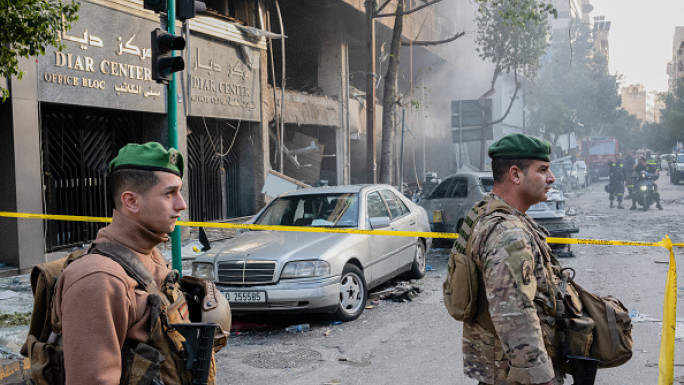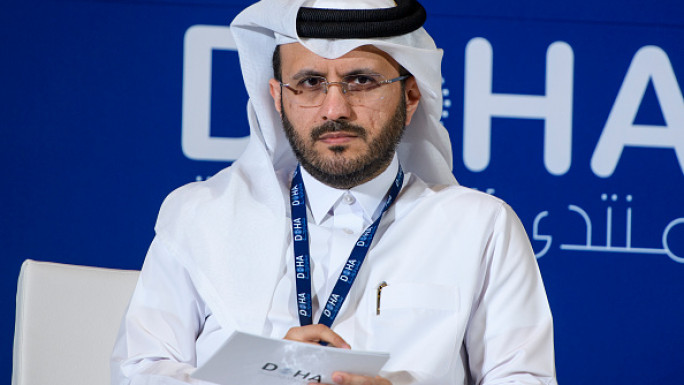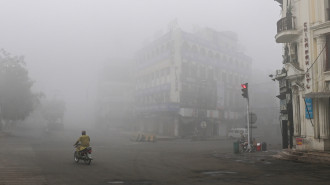Reclaiming Rumi: How Islam was erased from the Persian poet's work
In recent years, Rumi has become a household name in the West, and work attributed to his name has received unparalleled recognition in popular culture. Rumi was even named the best-selling poet in the US in 2014.
Work attributed to the 13th-century Muslim scholar and poet is frequently quoted in the media by celebrities and public figures, such as Ivanka Trump. Even Drake is thought to be a big fan, while Beyonce named one of her daughters after him.
The issue with the mainstream circulation of the quotes attributed to Rumi is that they are often inaccurately translated from Persian and interpreted in a way which removes any trace of Rumi's Islamic faith, as well as any cultural references to the Muslim world.
Sharghzadeh, a Detroit-based graduate of The University of Michigan and co-founder of Rumi Was Muslim told The New Arab that "many of Rumi's most famous works have been translated from Western scholars to remove any mention of Islam, and often embedded with orientalist tropes."
 |
Quotes attributed to Rumi are often inaccurately translated and interpreted in a way which remove any trace of his Islamic faith |  |
Context and history surrounding the poet's work, which are both linked closely with his identity as a Muslim, are often absent entirely, and add to further misinterpretation. The post below shows a widely quoted verse attributed to Rumi.
| Instagram Post |
Placed side by side with a new translation from Sharghzadeh, who also runs the page persianpoetics, the absence of religious terminology such as "kafir" is evident, as well as the inclusion of the word "caravan," a term that could be accused of evoking orientalist stereotypes of the East.
'Rumi Was Muslim'
After some time discussing these issues between them as friends, the founders launched the Rumi Was Muslim project as a long term campaign on Instagram and through a website with two primary aims in mind.
"We made Rumi Was Muslim a movement with two goals, firstly to increase public awareness about misleading or fabricated Rumi quotes that circulate on the internet," Sharghzadeh told The New Arab.
"Secondly, we want to produce our own, accurate translations of poems by Rumi and other Muslim poets. At the moment, translations of Persian poetry are either highly technical, academic translations that are not accessible to the average reader, or 'pop translations' or renderings by people like Coleman Barks," he said.
The Rumi Was Muslim campaign seeks to bridge the gap between these two bodies of interpretation.
According to the founders, they hope to produce translations that are academic in accuracy and research but remain accessible to English-speaking audiences through availability to a wide audience.
 |
It's a form of cultural theft and Islamophobic erasure to downplay his Islamic identity |  |
In addition to their own translations, the Rumi Was Muslim platform also promotes books translated by esteemed literary scholars such as Jawid Mojaddedi and Ibrahim Gamard, whose work is considered to be accurate and does not erase historical context.
The most widely printed translations of Rumi's work are linked to Coleman Barks, an American poet who does not read Persian or Arabic but re- interpreted nineteenth century translations of Rumi for a mass US audience.
| Instagram Post |
It is often these translations which make it to the mainstream media and are quoted in popular culture.
Whitewashing Rumi
Today in the West, Rumi is usually referred to as a 'mystic,' 'spiritual' and sometimes 'Sufi,' but rarely described as Muslim.
"Mowlana is universal, but he didn't emerge in a vacuum, he was Muslim, and his universality should be understood within the context of the Islamic tradition. It's a form of cultural theft and Islamophobic erasure to downplay his Islamic identity," explains Sharghzadeh.
In the modern-day context, where mainstream representations of Islam and Muslims in film, TV, and literature are either absent or overwhelming negative, erasure of Islam from Rumi's poetry is particularly problematic - it lends itself to the "good" West vs. "bad" East orientalist stereotypes.
As far as literary accuracy is concerned, erasure of religious context can also detract from the original meaning of the poet's work.
"We should not forget that Rumi's writing isn't just love poetry, his works are part of our religious canon, just like any other important book in the Islamic tradition," says Sharghzadeh.
In a Q&A video posted on the platform, the founders explain that translating a piece of poetry from Rumi takes significant time and dedication, which makes it particularly alarming to see social media accounts with hundreds of thousands of followers post quotes which are not sourced or attributed correctly.
These quotes are at best inaccurate, and at worst entirely fictitious.
On the platform, Zirrar and Sharghzadeh say the quote above cannot be traced to an original Rumi work. Going forward, the pair hope to continue with the campaign and raise more awareness about the issues surrounding Rumi's work.
At the moment the campaign remains online, but they hope that in the future they can extend the Rumi Was Muslim to the wider publishing world.
Sahar Esfandiari is a British-Iranian writer focused on the Middle East and its diaspora
Follow her on Twitter: @saharesfandiari






 Follow the Middle East's top stories in English at The New Arab on Google News
Follow the Middle East's top stories in English at The New Arab on Google News


